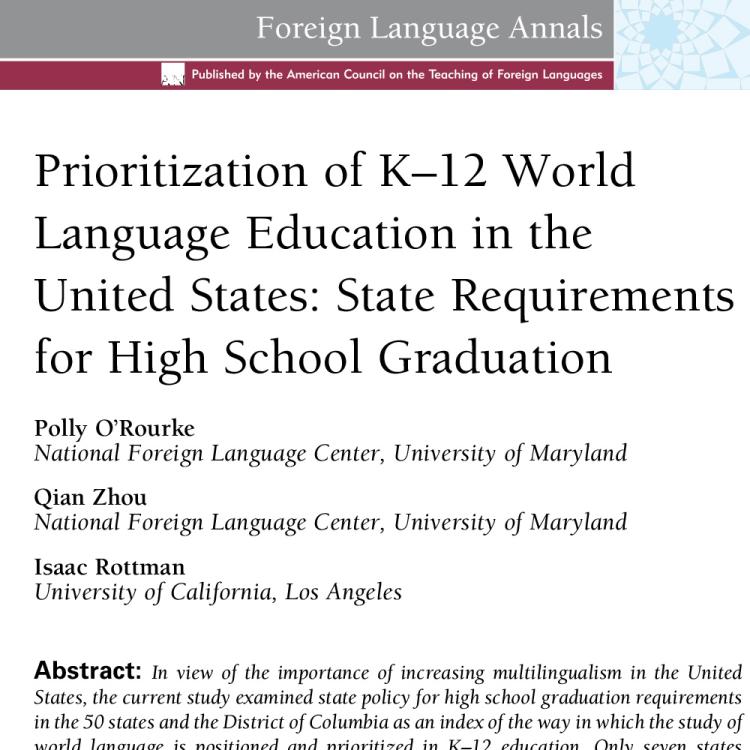Prioritization of K–12 World Language Education in the United States
State Requirements for High School Graduation
Foreign Language Annals, Winter 2016, volume 49, issue 4
This article examines high school graduation policies in all fifty states and the District of Columbia in order to assess the status of world language study in K–12 education. The article concludes that world language education is not prioritized in state-level policies, and it recommends initiatives at the federal level to improve the state of world language education in the United States.
In view of the importance of increasing multilingualism in the United States, the current study examined state policy for high school graduation requirements in the 50 states and the District of Columbia as an index of the way in which the study of world language is positioned and prioritized in K–12 education. Only seven states require the study of a world language other than English as a prerequisite for high school graduation for all students. The majority of states do not include world languages as a requirement for high school graduation, but almost half include world language coursework as an option of fulfilling an elective graduation requirement. Overall, while there are some positive developments, principally the Seal of Biliteracy initiative, world language education is not prioritized in state-level policies. Continued efforts, possibly at the federal level, are required to maintain and promote world language education in the United States

